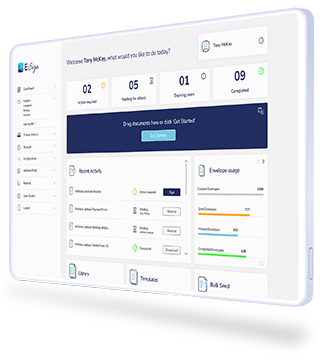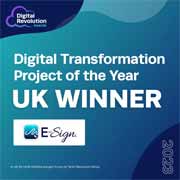The Legality of eSignatures in the Philippines
Explore the legality of electronic signatures in the Philippines and the laws and regulations that govern their use.

Trusted By
Are eSignatures Legally Binding in the Philippines?
Documents that can be signed electronically
Generally, any type of contract can use an electronic signature in the Philippines as long as all the essential requisites for their validity are used. The E-Commerce Act applies to any type of electronic document used in commercial and non-commercial transactions including domestic and international dealings, agreements, contracts and exchanges, and information storage. Therefore, an e-signature may be used as long as Philippine law does not require compliance with certain formalities in its execution.
Electronic signature guidance
Electronic signatures can be authenticated in multiple different ways including:
- With evidence that a method or process was used to establish a digital signature and verify it
- By any other means provided by law
- By any means deemed satisfactory to the judge in establishing the authenticity of the electronic signature
Types of e-signature permitted in the Philippines
The E-Commerce Act defines an electronic signature as “any distinctive mark, characteristic and/or sound in electronic form that represents the identity of an individual and attached to or logically associated with the electronic data message or document or any other methodology/procedures used and executed by a person to authenticate an electronic document.”
Electronic signatures are recognised as legally equivalent to handwritten signatures in the Philippines, provided their authenticity can be established. To validate an e-signature, it must be demonstrated that a prescribed, tamper-proof procedure was followed, ensuring:
- A reliable method was used to identify the signer and confirm their consent by requiring their access to the document.
- The method employed is appropriate and dependable for the document’s intended purpose.
- The signing party’s agreement is essential for the transaction to proceed.
- The other party has the authority and means to verify the electronic signature and decide whether to continue with the transaction.
Additionally, Republic Act No. 8792 defines a “digital signature” as a type of electronic signature created through the transformation of an electronic document or data message. This transformation uses an asymmetric cryptosystem, which includes both the signer’s public key and private key.
Notable legality changes since 2020
None.
Publicly Accessible Links to Laws/Regulations Discussed
Disclaimer
The content provided on this website is meant for general informational use only and does not constitute legal advice. Legal regulations on this topic can evolve rapidly, so E-Sign does not ensure that the information presented here is always up-to-date or accurate. If you have particular legal concerns regarding any details on this site, it is recommended that you consult with a licensed attorney in your jurisdiction.
Last Updated 9th October 2024




























